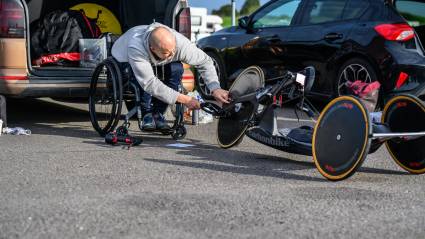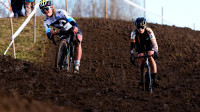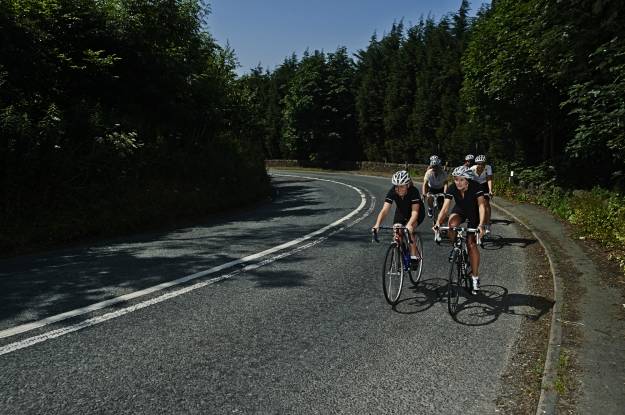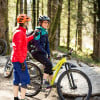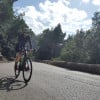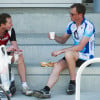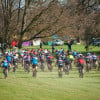Knowledge Level: Intermediate
One of the joys of cycling is that it’s genuinely a sport for all ages. From toddlers on their first balance bikes to club stalwarts riding every Sunday into their seventies and beyond, there’s no reason why it can’t be a lifelong pleasure. However, in order to get the most out of your cycling, it’s essential to take age into consideration.
Young riders
The main focus for young riders, especially those younger than 12 (Youth Categories C, D and E), should be on fun and bike handling skills. As well as trying as many different forms of cycling as possible, they should also take part in a wide range of activities. There’s good evidence that children who do a mix of sports, rather than specialising too early, go on to be more robust and successful athletes in later life.
At this age they can join a local Go-Ride Club where they will be taught the basics of bike safety, bike handling and group riding techniques through game based activities. This is a great place to make friends who are also excited about the sport.
Between 12-14 (Youth Category B) can be a difficult age bracket as levels of mental and physical development are incredibly varied. As they’ll be experiencing growth spurts at this stage in their physical development, any physical training could have minimal benefits. Don’t panic if they seems to be getting left behind as this will change once physical development evens out. Up until the last year of this category, they should ride their bike as much as they want. With no prescribed sessions, they can ride with friends, a rollers session, a skills session, a race, but they should have at least two full days off the bike in their week where they do other sports or activities with their friends.
In the last year in the Youth B age group, they should start to take more of an interest in how their training effects their performance. Their racing will start to look like a bike race on TV and although they might start to gravitate towards a particular discipline, a multi-discipline approach has been shown to be beneficial for longer term development as a rider.
If they want to be active in racing at this stage they’ll need to understand that riding their bike regularly is key to success and, although they don’t need to be following prescriptive training sessions, missing out on time on the bike will be detrimental to their performance. At this stage they can also document what they have done on the bike each week and have it reviewed by their coach.
They should be aiming for a five day riding week that includes a turbo session, rollers session, technical/tactical session with a club, a training ride and a race if possible. A local Go-Ride club coach should be able to advise them on structuring your week with the help of Regional Talent Development Coaches. Structuring their riding should be a collaboration between parents, coaches and the rider.
Once they’re over 14, they’ll ideally have had 8 years of technical training, fitness development and two years of developing the structure of their cycling week. However, there have been plenty of cases of riders not getting into cycling until this age, or older, and being extremely successful in the sport. If they have got a base of skills, fitness and knowledge established, session can now become prescriptive. At this stage in their development, they'll be riding their bike 5 days a week with two rest days, could possibly be selected for regional coaching and racing events and are two years away from racing on the open roads.
Cycling in your 20’s and 30’s
Cycling in your 40’s
Cycling in your 50’s, 60’s and beyond


